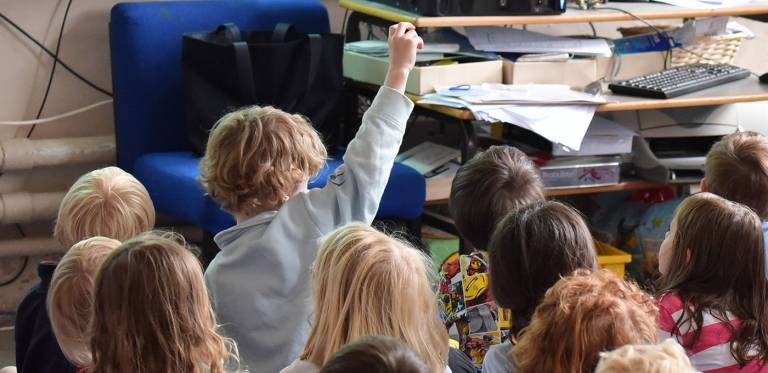Maximising the Impact of Teaching Assistants
Evidence-based solutions to improve the quality of Teaching Assistant support and SEND provision.

21 December 2017
Background
A large three-form entry primary school in south-west England was facing financial and staffing challenges brought about by the local authority’s decision to change the age of transfer (the age at which children move up to their next school). With a staffing restructure inevitable in the year ahead, the headteacher reviewed options for achievable reductions that would not lead to a reduction in the quality and consistency of provision.
The headteacher did not want the challenge ahead to become a process of staff rationalisation, but to use it as an opportunity to thoroughly review the deployment and effectiveness of teaching assistants (TAs). The school undertook the MITA leadership programme to support this process of change and to ensure that TAs could make a valuable contribution to teaching and learning as part of a reformed and re-energised staff team.
Challenge
There was understandable concern amongst some of the TA team that the programme could lead to job losses. The headteacher met with the TAs to explain how MITA fitted into her school development plan. She highlighted how the TAs’ professional needs were being given attention that was long overdue, and explained how the proposed changes would lead to upskilling and more effective working arrangements.
Solution
The headteacher and her SENCo attended the MITA course at IOE to learn more about our research on TA use and impact, and how to act on the evidence back in school. After the first of three sessions, a MITA Reviewer (a practising headteacher and National Leader of Education) visited the school to meet with the SLT and conduct a thorough review of current practice of TA deployment and effectiveness. SLT completed a self-evaluation and the results of both processes fed into a short report, prepared by the MITA Reviewer. Some familiar issues were identified:
- TAs worked predominantly with low-attaining pupils and those with SEND
- Consequently, the pupils that needed the teacher most, got the least of their attention
- There were no opportunities for teachers and TAs to meet, so TAs were often unsure of lesson objectives and outcomes
- This lack of preparedness undermined their impact in lessons
- Interactions between TAs and some pupils with SEND fostered dependence; some vulnerable pupils had developed a ‘learned helplessness’
- Some TAs’ literacy and numeracy skills were not at the level required to support the new Year 5/6 curriculum.
The report findings were used as the basis to develop a clear vision for change, outlining what SLT wanted to achieve from the MITA process, and a detailed plan of action for the year ahead.
The MITA Reviewer was invited back to the school to independently review progress at the end of the second term, and drew up a ‘next steps’ action plan for the forthcoming year.
Impact and results
A restructure of support across the school helped to take pressure off the budget, without resorting to the mass redundancies staff had feared. The TA team overwhelmingly bought into the project, with a couple of the more sceptical TAs being won over as the process unfolded. The TAs valued the MPTA training, as it set out a particular role for them in the classroom aimed at addressing the learned helplessness, which they worried about.

Halfway through the project, the school received an Ofsted inspection. Inspectors commented favourably on the impact of TAs, noting they did not intervene too quickly and that, as a result, pupils were able to get on with tasks without adult help.
The introduction of 25 minutes meeting time at the start of the school day had been so invaluable, that the anxieties some TAs had about starting work earlier have been alleviated. TAs with children at the school have been given free Breakfast Club places to help.
When the MITA Reviewer returned to talk to staff, she was struck by the way teachers and TAs talked about feeling more positive about their roles. The SENCo had initiated an in-house training programme on SEND, which had improved teachers’ confidence and competence. The headteacher felt the quality of TA support and SEND provision was improving, and noted some early indications that this was washing through into pupil progress.
The headteacher shared the school’s work with nearby schools. This, in turn, led to the IOE team being commissioned to deliver the MITA leadership programme for other local schools. Schools offered to host one of the three leadership sessions for free, ensuring they were all able to access the MITA course for about £300 each.
 Close
Close

